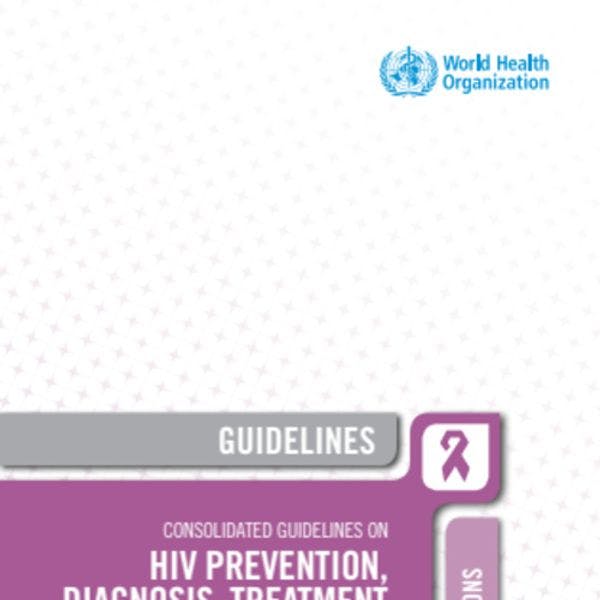Consolidated guidelines on HIV prevention, diagnosis, treatment and care for key populations
For more information on the Guidelines, please read our latest blog!
In this new consolidated guidelines document on HIV prevention, diagnosis, treatment and care for key populations, the World Health Organization (WHO) brings together all existing guidance relevant to five key populations – men who have sex with men, people who inject drugs, people in prisons and other closed settings, sex workers and transgender people – and updates selected guidance and recommendations.
The risk behaviours and vulnerabilities of key populations result in their being disproportionately affected by HIV in all countries and settings. These disproportionate risks reflect both behaviour common among members of these populations and specific legal and social issues that increase their vulnerability. Yet HIV services for key populations remain largely inadequate. In many settings HIV incidence in key populations continues to increase, even as incidence stabilizes or declines in the general population.
To date, WHO has developed normative guidance separately for each of the five key populations, but, in general, guidance has not adequately addressed overarching issues relating to key populations. Similarly, the WHO global HIV guidance, including the 2013 consolidated ARV guidelines, did not specifically consider issues relating to key populations.
Consequently, these guidelines aim to address these gaps and limitations by:
- Providing a comprehensive package of evidence-based HIV-related recommendations for all key populations;
- Increasing awareness of the needs of and issues important to key populations;
- Improving access, coverage and uptake of effective and acceptable services; and
- Catalyzing greater national and global commitment to adequate funding and services.
Keep up-to-date with drug policy developments by subscribing to the IDPC Monthly Alert.
Downloads
Regions
Related Profiles
- World Health Organization (WHO)
